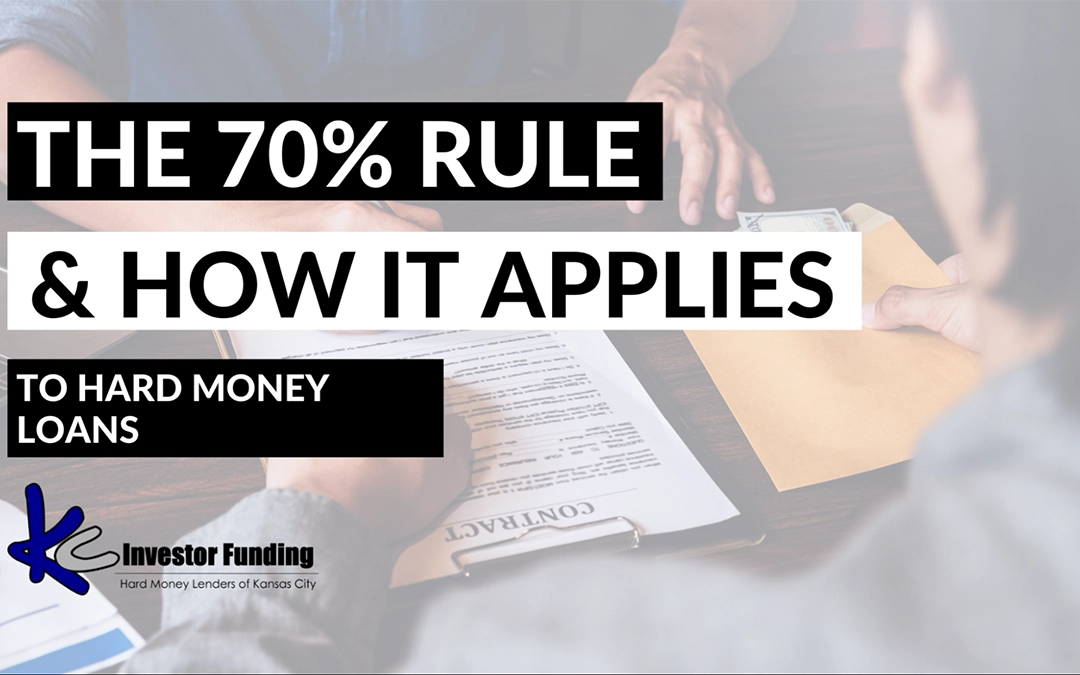When you start your hunt for the perfect real estate investment project, you are thrown into a sea of new vocabulary, rules, and priorities to which you should be paying attention. Not only can this get overwhelming, but it can distract you from your goals when you choose to flip a house or invest in a property. The 70% rule is commonplace in real estate investing.
When it comes to flipping a house or investing in a property, the 70% rule could come in handy. The first thing you should do before jumping into the deep end is assess your budget, your need for loans, and the amount of return you hope to get back. These answers can give you a solid foundation to start your investment in real estate. The 70% rule can significantly help when starting your first project, especially if you are searching for a hard money loan.
What Is The 70% Rule?
The 70% rule dictates that you should not pay more than 70% of the property’s after repair value, ARV. Whether you are purchasing a flipper house or a wholesale property, having a crew come in to determine how much the needed renovations will be can give you a clearer picture of what you should expect to spend.
For instance, imagine you found the ideal house and property for $150,000. You then bring in a contractor to assess the house, and they give you a rough estimate of $50,000 for renovations. From here, that now makes your ARV $200,000. Utilizing the 70% rule means you should only pay $140,000 for the property.
Is It Adjustable?
When the word “rule” is involved in investment talk, it can be easy to assume that you must follow it. However, the 70% rule is more of a guideline. Depending on the market you are investing in, you may choose to change that to 65% or 80% or something specific to your circumstance. If your property is in a low-end market area, you might want to consider a 65% rule, but if you are in a high-end market, 80% might be better. In the end, this is a tool to ensure you are not overpaying for a property needing heavy renovations and maintenance.
It is essential to remember that this rule does not include other costs that come with purchasing a property. The 70% rule is a great way not to spend more than you should while keeping money aside for the additional costs. Other costs associated with purchasing a property include carrying, settlement, financing, and closing costs.
How Does The 70% Rule Benefit You?
As you start your venture into investing in real estate properties, you are going to need to keep your budget as the top priority. The 70% rule can be a great way to invest in the property of your dreams without placing too much risk on the investment. When investing in something so large, limiting your risks in any way can be beneficial while still making money afterward. The 70% can determine how much you spend, providing you with extra money for the other costs of buying a property, and if you still have money left over, you can use it for anything extra you have planned.
How Does It Apply to Hard Money Loans?
If you have found a property you wish to flip or purchase, hard money loans are available to help you fulfill your real estate project. Our KC 100 Bridge/Rehab and Nationwide Bridge/Rehab Program include the 70% rule as a benefit to you. So you are able to get the property you want with less risk of putting too much money into the estate, we provide 100% of the purchase and 100% of the rehab costs, meaning up to 70% of the ARV. Your loan will go towards the property safely and reliably, ensuring you are not taking out a larger loan than necessary and going over budget.
If you have questions or are looking to invest or find a loan for your next real estate project, reach out to the team at KC Investor Funding.

